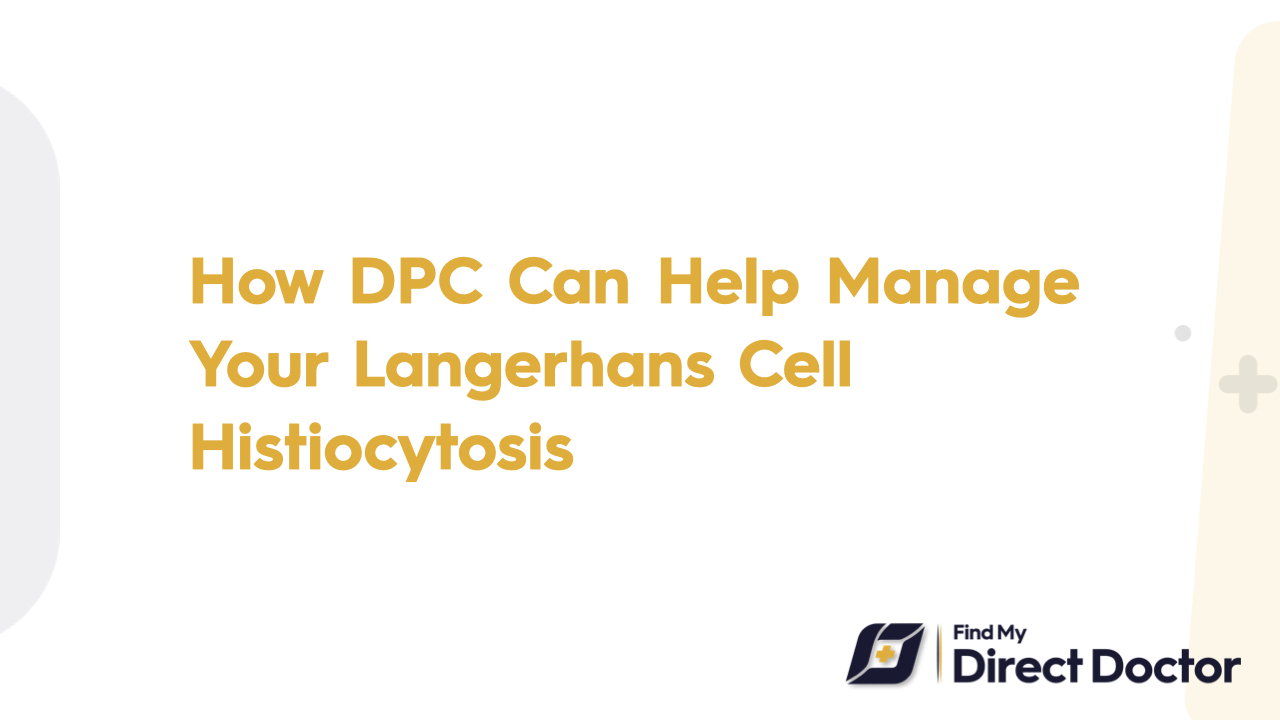



A rare condition known as Langerhans Cell Histiocytosis (LCH) is brought on by an excess of Langerhans cells, a subset of white blood cells involved in immunological responses, produced by the body's immune system. These cells build up in many organs and tissues, which can cause damage and inflammation. The skin, bones, lymph nodes, liver, spleen, and maybe the lungs and pituitary gland are among the bodily areas that LCH might impact.

Depending on which organs are impacted, LCH symptoms might vary, but frequent indications include skin rashes, lesions, and bone pain or swelling, particularly in the skull or long bones. Organ dysfunction signs, like enlarged lymph nodes, respiratory difficulties, or weight loss, may occasionally be present. More severe issues, such as compromised organ function, may arise when LCH impacts the body's organs. Because of their variable character, the symptoms can range from minor to severe and occasionally be misinterpreted as other disorders.
Because Direct Primary Care (DPC) offers quick access to medical professionals and continuous, individualized care, it can be extremely important in the ongoing management of Langerhans Cell Histiocytosis. Since LCH is a complicated and frequently chronic illness, DPC enables patients to have regular checkups, which helps their doctor keep a close eye on the disease's course and modify treatment regimens as necessary. The best opportunity for prompt intervention is provided by this steady level of care, which aids in the early detection of any issues.
Patients with LCH gain from a more cooperative approach to illness management under a DPC paradigm. They can address issues pertaining to new symptoms or problems without having to wait a long time for an appointment if they have direct access to their primary care physician. DPC guarantees that patients have a reliable and knowledgeable healthcare professional assisting them with their treatment, whether it includes managing pain, modifying medication, or setting up specialist referrals.
DPC is advantageous for patients with Langerhans Cell Histiocytosis because it emphasizes individualized treatment, better access to healthcare professionals, and more thorough condition management. Because LCH necessitates close observation of symptoms and response to treatment, DPC allows patients to communicate freely and continuously with their healthcare professional. This can greatly lessen the worry and anxiety that frequently accompany a rare, chronic illness.
Additionally, DPC makes it possible to create a customized care plan that considers the patient's particular medical background and present state of health. To make sure that every facet of the patient's health is taken care of, this may entail managing treatment side effects, offering lifestyle advice, or working with specialists. More frequent visits or consultations allow for prompt attention to any changes in the patient's condition, preventing problems and enhancing the general quality of life for those with LCH.
In a DPC environment, personalized management of Langerhans Cell Histiocytosis entails creating a care plan tailored to each patient's particular requirements and illness presentation. The flexibility of DPC allows doctors to tailor treatment programs and closely monitor progress through frequent consultations, as LCH can affect individuals differently. Monitoring blood tests, bone scans, and other diagnostic procedures to gauge the spread or advancement of LCH are examples of these individualized care approaches.
DPC professionals can give holistic support to manage the mental and physical elements of living with a chronic condition like LCH, in addition to typical medical therapies like corticosteroids or chemotherapy. This could include dietary advice, stress-reduction strategies, and tools for dealing with weariness or pain. Patients can better manage their conditions and preserve their general well-being when they are given the opportunity to actively participate in their healthcare decisions through tailored care.
Previous Post